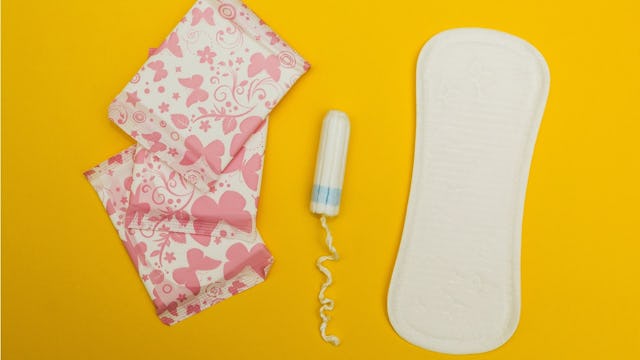Scotland To Provide Low-Income Women With Pads And Tampons, And We Need This EVERYWHERE

In an innovative and historic move, Scotland recently became one of the first countries in the world to provide feminine hygiene products to low-income women. The program will be focused on the women and girls living in the city of Aberdeen, and will provide them with free tampons and sanitary pads.
Amazing. Fist pump to you, Scotland.
According to the Independent, it will be launched as a six-month pilot program run by Community Food Initiatives North East (CFINE) and will benefit at least 1,000 women and girls. CFINE chief executive Dave Simmers explains that menstrual products can cost over £5,000 throughout a woman’s lifetime (that’s about $6,500). Simmers calls this “a significant sum for those on low-income,” adding that, “Many cannot afford them, and may use inappropriate methods or miss school.”
Scotland has made a necessary and important move that should be applauded. BRAVO. No young woman should be stopped from going to school — or going about her life — just because she has her period. It boggles the mind that providing sanitary products to low-income women isn’t already considered an absolute and complete necessity, the same as food and shelter.
Let’s hope that this initiative in Scotland moves beyond just this pilot program and becomes a policy throughout all of Scotland.
But let’s not stop there. “Period poverty,” or lack of access to feminine hygiene products, is something that affects millions of women and girls throughout the world.
And let’s call it for what it is: Patriarchy and misogyny at its peak.
It feeds into the belief that the amazing, sometimes painful and uncomfortable, life-giving biological processes that women’s bodies go through on a monthly basis are something that can’t be talked about — something that must be hidden and tended to in silence, without support. And most of all, it initiates a cycle of shame for girls surrounding their bodies and bodily functions.
When you think of “period poverty,” you might think of the women and girls in Kenya, where the majority have zero access to feminine hygiene products, and where menstruation is often cited as the No. 1 reason they miss school. This is unconscionable and isn’t just embarrassing and shame-inducing for the girls, but limits their overall opportunities in life — just because they were born with female reproductive systems.
But listen up: We in the U.S. are not off the hook. America, one of the wealthiest countries on the planet, has millions of low-income women who also suffer from lack of access to feminine hygiene products.
As the New York Times points out, 40 million women in America are living in poverty, or close to it. It can cost up to $70 or more to buy a year’s supply of tampons, which is a lot for a woman living in poverty. And no, SNAP benefits (food stamps) do not cover feminine hygiene products (they don’t cover diapers either, another unacceptable fact that makes the lives of women and children that are much more unmanageable and unsanitary).
“Period poverty” isn’t just “mean” or inconvenient. Besides missing school, work, or other important events that can make or break a woman’s ability to function and achieve, it can lead to unsanitary conditions, with potentially dangerous health-related side effects. For example, the New York Times highlights cases in Bangladesh, where unclean, contaminated menstrual rags have led to infection, and cases in India, where menstrual hygiene problems have been linked to cervical cancer.
We can do better for our women and girls. We must do better.
So what can we do? We can make it known to our government representatives that pads and tampons should be provided free of charge to all women and girls who need them. They should be included in government assistance programs like SNAP and WIC. And they should be available free of charge in public restrooms and in our schools, much like soap and toilet paper is.
There are things you can do in your own community as well. You can donate feminine hygiene products to your local women’s shelter (and make sure to throw in a few diapers in there too!). There are several organizations you can donate to as well, including Dignity Matters, The Period Project, Tampon Tuesday, and DonatePads.org. A quick internet search will help you locate a local organization near you as well.
But one of the most important things you can do is raise awareness about this issue. It may not affect you directly, but it’s a worldwide problem that needs to be addressed pronto. We are talking about the health and dignity of our fellow women and girls, and nothing should stop any of them from living their best lives.